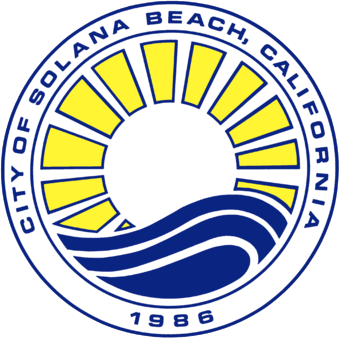- CITY SERVICES
- CITY PROJECTS
- RFPs & Construction Bids
- La Colonia Park Master Plan
- Lomas Santa Fe Corridor Improvement Project
- Marine Safety Center Upgrade
- Neighborhood Traffic Management Program
- Playground Renovation Project
- Safe Routes To School
- Shoreline Project (Sand Replenishment)
- Glenmont Pocket Park
- Santa Helena Neighborhood Trail
- PERMITS, LICENSES & RENTALS
- RESIDENT SERVICES
- -ENVIRONMENTAL SUSTAINABILITY
Edible Food Recovery
This page contains SB 1383 edible food recovery resources.
SB 1383 requires certain food-generating businesses to donate their surplus edible food to people in need. Feeding hungry people through food recovery is the best use for surplus food and a vital way for Solana Beach to conserve resources and reduce waste thrown in landfill.
If you are a food generating business, we encourage you to view this educational webinar (November 2021) for a general overview.
Per SB 1383, businesses that are required to donate surplus edible food are categorized as Tier 1 and Tier 2 Businesses and meet the following thresholds:

Find more information on the CalRecycle website here:
- Food Waste Prevention Resources
- Edible Food Recovery Program Resources
-
- SB 1383 Food Recovery Requirements Overview, en espanol
- Food Donation Liability Protections and Food Safety en espanol
- 5 Steps for setting up & maintaining a food donation program, en espanol
- A Guide to Food Donation Tax Deductions, en espanol
- Food Recovery Agreement Template, en espanol
- Customizable Poster, en espanol
- Food Recovery Organization List
- Food Recovery Compliance Requirements for Businesses
-
Solana Beach businesses are obligated to comply with the following requirements stated in the City of Solana Beach Municipal Code (6.20.135):
- Recover Surplus Food: Tier 1 or Tier 2 commercial edible food generators must donate the maximum amount of surplus edible food to a food recovery organization or service.
- Partner with Food Recovery Organization: Tier 1 or Tier 2 commercial edible food generators must donate surplus edible food to a food recovery organization or service. They must also have a copy of all contracts or written agreements established under 14 CCR Section 18991.3(b).
- Keep Records: Tier 1 or Tier 2 commercial edible food generators must maintain records of the following information for each Food Recovery Service or Food Recovery Organization:
- Name, address, and contact information of the Food Recovery Service or Food Recovery Organization
- Types of food collected or self-hauled
- Frequency and quantity of food recovered (in lbs.)
- Annual Reporting Form: Submit donation records for the entire previous calendar year to the City of Solana Beach on July 1st. Submit the form to Nicole Grucky at ngrucky@cosb.org.
- Food Recovery Compliance Requirements for Food Recovery Organizations or Services
-
SB 1383 requires Food Recovery Organizations that receive donations of food or are in an agreement with a regulated Tier 1 or Tier 2 food generator to maintain records of pounds of donations.
Definitions:
- Food Recovery Organization: An entity that collects and transports edible food from food businesses and distributes it directly to the public.
- Food Recovery Service: An entity that collects and transports edible food from food businesses to food recovery organizations or other entities for distribution.
Requirements:
- Keep Records: Maintain records of the following items or have them electronically accessible during annual inspections:
- Records of donation activities.
- Records of the edible food collected, received, or transported.
- Records of edible food in pounds that is collected, received, or transported from each commercial edible food generator/food recovery service per month.
- Annual Reporting Form: Submit donation records for the entire previous calendar year to the City of Solana Beach on July 1st. Submit the form to Nicole Grucky at ngrucky@cosb.org.
For more information contact:
Nicole Grucky, Senior Management Analyst 858-720-2467

